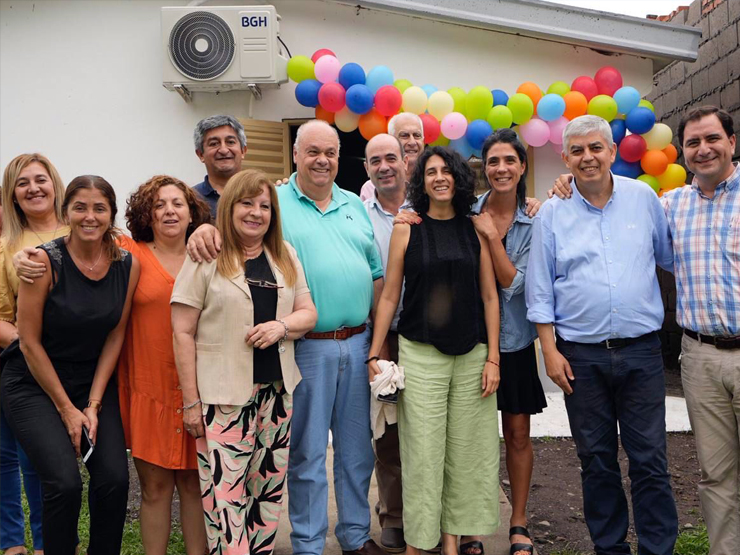
Teniente Berdina becomes the fifth Child Care Center in a large family of services to the community that the blueberry sector, together with an increasing number of institutions, is promoting for the benefit of rural workers and their families and with the aim of preventing and eradicating child labor in agricultural production in the province of Tucumán and promoting education. Currently, in addition to the 5 CCCs, we also have 2 Youth Spot Centers for children between 10 and 17 years of age.
Located at 48 kilometers from the capital of the province, this town has only a few blocks where the main source of employment for its inhabitants is rural work. They move from one harvest to the next to support their families. Until the present day, they have not had a community care space where they can be supported, cared for and nourished.
But this center is not just one more center, it tells a beautiful story that shows how the virtuous circle of this associated management between the public, private and civil society sectors continues to grow and gives to this opening a different feature.
“We are extremely happy with the inauguration of this child center, because it was a shortcoming we had in the town. Most of the population works in the blueberry and citrus harvest and no center existed to provide children with the care of trained people who could look after them during their parents’ working hours. Thanks to a number of people who joined hands, this space is now a reality”, says Norma Gladis Aguirre, the community commissioner.
Around a dozen women set out to prepare the place so that boys and girls from 0 to 4 years of age could have a space adapted to their needs. “To be able to provide a place for children with our work was unique and new for us. First of all because we obtained the job. We all got together and managed to do what you can now see”, says Claudia Racedo, a local resident and former harvester. They started by fixing the roof, replacing the roofing membrane, refurbishing kitchen and bathroom, tiling, electrical and water installations, painting, and even details such as curtains.
Claudia, the captain of this group of women, although she recognizes that these tasks are not easy, stresses that they all showed enthusiasm. “Only some of us had some knowledge from the beginning, but we all started to learn. It was a great opportunity, it paved the way for more work. We showed that it is not only men who can do this work”, she smiles proudly.
“Our future is reflected in the way we care for our children today”
This service will allow mothers and fathers to be able to go to work with the peace of mind that comes with a team of teachers, caregivers. It is a solution for early childhood care. It relieves the burden of care work to women who will be able to join the harvest knowing that they have a safe place.
Four other childcare centers are already operating in the province in the towns of Santa Lucia, Sargento Moya, Rumi Punco and Leon Rouges. They provide access to play, learning and protection. Thanks to the partnership between the Government of Tucumán through its different Secretariats and Ministries, blueberry producers represented by APARTUC and ABC, RENATRE, the National Ministry of Labor with its Programa Buena Cosecha (Good Harvest Program) and the NGO DyA – Foundation for Development and Self-Management, they have educational materials, toys, cradles, utensils, furniture and food specially designed for early childhood, apart from trained staff and a pedagogical methodology that provides added value. There are also two Youth Spot Centers for adolescents. They are provided with technological devices and school support to complete their education, a space for socializing, sports, cultural and recreational activities that allow them to find themselves as young people building their life projects.
“As a production sector, we have the role of linking all parties and making services to the community a space of opportunity for our workers. We believe that we are all part of the problem and therefore we must be part of the solution. Coordination between all stakeholders is difficult, but we are convinced that this is the way to ensure installed capacity in the municipalities and to provide quality services for the people”. Francisco Estrada, President of APRATUC.






